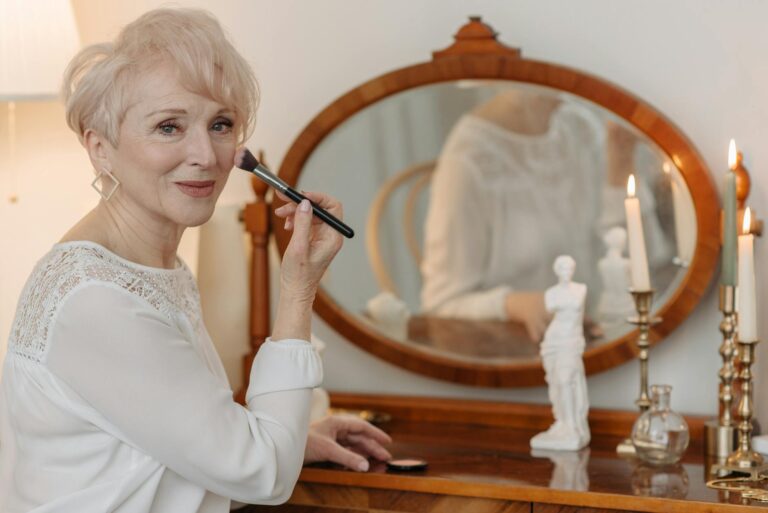Women Over 40 Share the Friendship Boundaries That Changed Their Social Life
Friendship in your 40s can look very different from what it did in your younger years. Priorities shift, energy levels change, and the way you want to spend your time often evolves.
As you move through these years, boundaries start to matter more. Setting them can help you feel happier and more in control of your social life.

It’s common to feel pressure to accept every invitation, but you don’t have to say yes to everything. Protecting your energy by turning down events that leave you tired or overwhelmed is perfectly okay.
When you decline, being kind but clear helps. You might simply say you need time to recharge or have other priorities.
Focusing on activities that genuinely make you happy can make your friendships feel more fulfilling. Honoring your energy is necessary for your well-being.
Some people will understand your limits better than others. That’s part of building a social life that truly fits your needs.

Cutting back on social media can help you feel more present with the people who matter most. Many women over 40 find that setting a daily limit frees up time for deeper friendships.
It’s not just about less screen time. Choosing to interact with close friends rather than scrolling endlessly makes your online moments more meaningful.
Limiting your social media use can also boost your mental health. Using platforms less often can reduce loneliness and help you feel more supported.
You don’t have to quit social media altogether. Setting small limits, like 30 minutes a day, can help you stay on track and encourage more real-life connections.
Focusing on genuine conversations rather than likes or followers can shift your social life in a positive direction. It’s about building quality friendships both online and offline.
Avoiding gossip and negative talk
Gossip can easily hurt friendships. It creates tension and makes others feel unsafe.
If you catch yourself about to talk negatively about someone, try to pause. Ask if what you’re about to say is kind or helpful.
Setting boundaries with friends about gossip builds trust. Let others know you prefer honest and respectful talk.
Sometimes it feels easier to join in on gossip, but it rarely leads to satisfying friendships. Focusing on uplifting conversations leads to stronger bonds.
Prioritizing friends who support growth

Friends who help you grow and encourage your goals make your relationships stronger. They cheer you on and support your changes.
It’s okay to let go of friendships that drain your energy or hold you back. Choosing friends who lift you up can improve your mood and outlook.
Building friendships with people who share your values makes it easier to stay connected. Open communication keeps these relationships healthy.
Setting clear boundaries around personal time
Your personal time is valuable. Setting clear limits on how you spend your hours gives you space to relax and recharge.
Let others know when you’re unavailable. You don’t need to explain every detail; just be honest.
Choosing how much time to spend with friends or on activities helps you avoid feeling stretched too thin. Setting these boundaries allows you to enjoy your relationships more.
If someone doesn’t respect your time, gently remind them of your limits. True friends will understand and appreciate your honesty.
Learn to say, “I need some time for myself,” without guilt. Protecting your personal time brings balance and improves your social connections.
Keeping conversations respectful and uplifting
As you get older, drama and negativity hold less appeal. Keeping conversations respectful helps everyone feel heard and valued.
If a conversation turns negative, it’s okay to gently steer it in a better direction. Focusing on uplifting talks helps your friendships grow.
You get to choose how you respond. If something feels stressful or hurtful, set a boundary or take a break.
Healthy friendships accept these needs without judgment. When both people respect each other’s feelings, your connection stays genuine.
Recognizing and stepping back from one-sided friendships

If you’re always the one reaching out or making plans, you might be in a one-sided friendship. Feeling drained or unappreciated after spending time together is another sign.
When you notice these things, it’s okay to take a step back. Giving yourself space helps protect your emotional health.
You don’t have to end the friendship immediately. Sometimes, setting clear boundaries and watching how the other person responds can reveal if they value the relationship.
If nothing changes, accepting that the friendship isn’t balanced is healthy. Letting go makes room for connections where care goes both ways.
Choosing quality over quantity in friendships
Your social circle changes as you get older. Instead of seeking lots of friends, you may start valuing deeper, more meaningful connections.
Choosing quality over quantity means focusing your energy on friends who truly support and understand you. These relationships bring more happiness and less stress.
It’s normal to let go of friendships that no longer fit your values. This helps you build stronger bonds with people who matter most.
Experts agree that quality friendships benefit your emotional health. You get more trust, support, and meaningful conversations.
Being honest about your emotional availability
Being clear about how much you can give emotionally helps you avoid burnout. Knowing your limits lets you set boundaries that protect your peace.
You don’t have to be open all the time. Taking space when you need it is okay.
Letting friends know when you’re not ready for deep talks keeps relationships respectful and balanced. Emotional availability is about sharing your true feelings and listening to others.
When you communicate honestly, your friends know where you are emotionally. This honesty builds trust over time.
Protecting your mental health by avoiding drama

Keeping drama out of your life is one way to protect your mental health. Drama brings stress and confusion that can wear you down.
Setting clear boundaries helps you avoid situations that cause unnecessary tension. Letting people know what you will and won’t accept creates space for calm and respect.
It’s okay to step back from friendships that bring more problems than joy. Friends who support you and keep things peaceful help you feel better.
Using emotional intelligence helps you understand others without getting caught in their conflicts. This skill lets you stay balanced, even when things feel tense.
By focusing on healthy relationships and boundaries, you get to enjoy friendships without drama. This protects your peace of mind and lets you feel happier each day.
The Importance of Healthy Boundaries in Female Friendships

Setting clear limits helps keep friendships balanced and positive. It ensures your time, energy, and emotions are respected.
Why Boundaries Matter After 40
Life priorities change as you get older. You might have less free time because of work, family, or self-care.
Boundaries help protect that limited time so you can focus on what matters most. Saying no without guilt and limiting how often you hang out keeps friendships from feeling draining or one-sided.
When friends respect your limits, you feel safer and more understood. This creates trust and makes your connections stronger.







